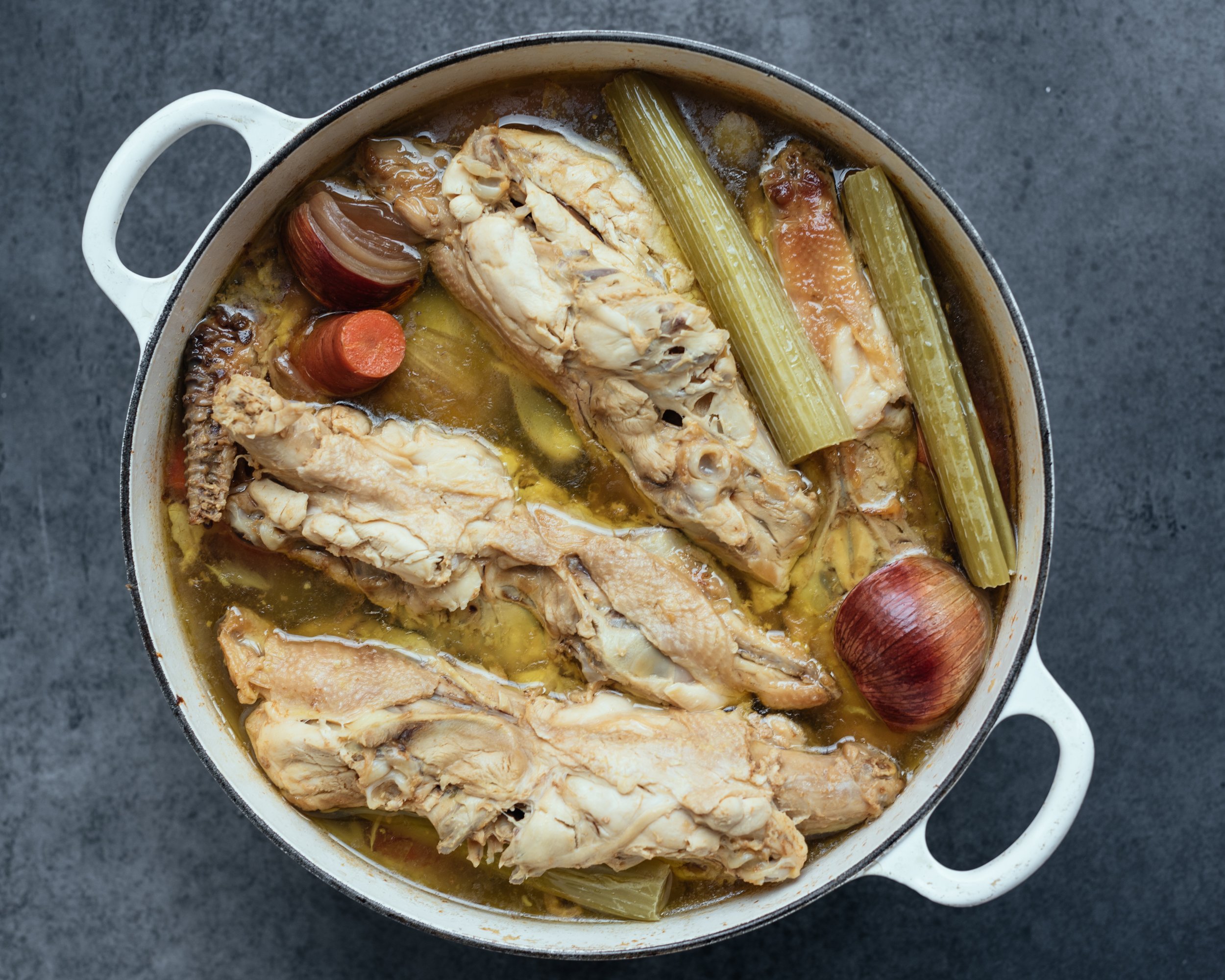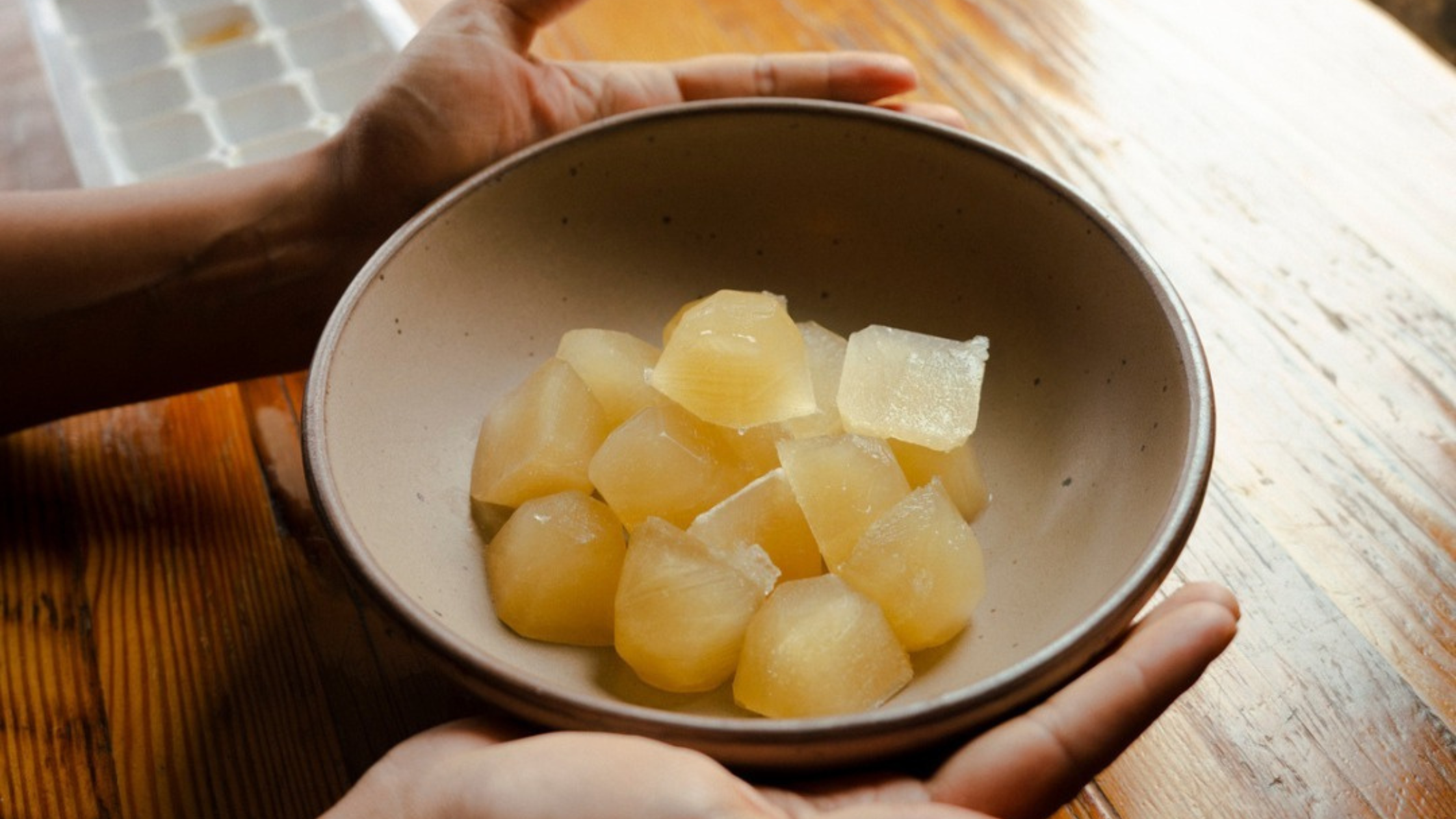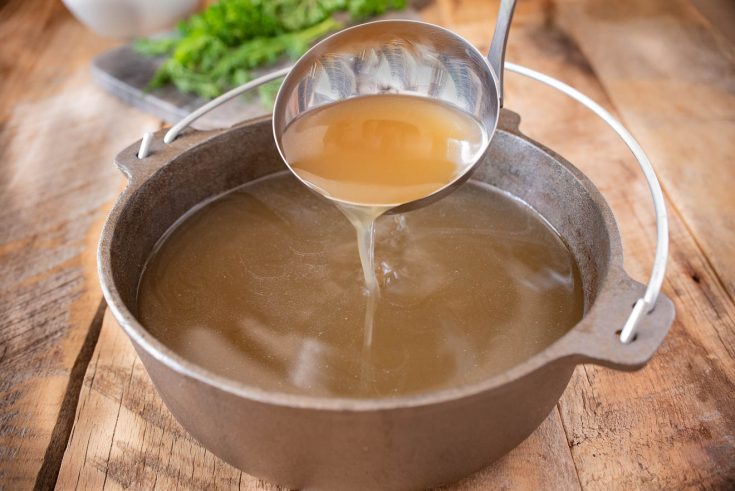The Value of Healthy And Balanced Food: Why Bone Broth Is a Fantastic Choice for Babies
When it concerns your baby's nutrition, every choice matters. Bone broth stands apart as a nutrient-dense alternative, providing necessary vitamins and minerals that support growth and growth. Its abundant make-up not only help digestion however likewise boosts the immune system. Recognizing just how to incorporate this flexible food into your infant's diet plan can establish the stage for healthy and balanced eating habits. What are the ideal means to present bone broth to your little one?
Nutritional Conveniences of Bone Broth for Infants
When you introduce bone broth to your baby's diet, you're offering a nutrient-dense food that provides numerous health advantages. Loaded with necessary vitamins and minerals, bone broth includes calcium, magnesium, and phosphorus, which support your baby's expanding bones. It's additionally rich in collagen, helping in the advancement of healthy and balanced skin, joints, and connective tissues.
Furthermore, bone broth is an excellent resource of amino acids like glycine and proline, which play a considerable duty in total growth and muscle development. These nutrients help advertise a solid body immune system, setting a solid foundation for your baby's wellness.
In addition, bone broth is easy to absorb, making it a mild option for your little one. By integrating this wholesome food right into their dishes, you're ensuring they obtain important nutrients required for their overall health. Go in advance and make bone broth a staple in your infant's diet regimen!
Exactly How Bone Broth Supports Food Digestion
Bone broth is loaded with necessary nutrients that can truly benefit your child's food digestion. It promotes intestine health and wellness and assists with nutrient absorption, making it a fantastic enhancement to their diet regimen. By incorporating bone broth, you're establishing the stage for a much healthier gastrointestinal system.
Nutrient-Rich Make-up
Among one of the most nutrient-rich foods you can present to your infant's diet is bone broth, which is loaded with vital minerals and amino acids that sustain healthy digestion. Rich in collagen, bone broth aids enhance your child's intestine lining, making it less complicated for their body to absorb nutrients. It offers gelatin, which assists in damaging down healthy proteins, promoting smoother food digestion. Furthermore, the broth contains necessary electrolytes like potassium and magnesium, guaranteeing your infant remains hydrated and stabilized. The amino acids, such as glycine and proline, play an important role out of commission cells and sustaining total health (where to get bone broth). By incorporating bone broth into your baby's dishes, you're offering them a wholesome food that nurtures their digestion system successfully.
Promotes Gut Health And Wellness
As you present bone broth right into your baby's diet plan, you'll locate it not only nurtures yet likewise advertises gut wellness properly. Rich in jelly, bone broth helps soothe the digestion tract, reducing inflammation and supporting a healthy and balanced intestine lining. Furthermore, the amino acids discovered in bone broth, such as glycine, help in food digestion and can help stop usual stomach troubles.
Aids Nutrient Absorption
Presenting bone broth not just sustains gut health but additionally plays a considerable function in helping nutrient absorption. When you offer your baby bone broth, you're giving an abundant resource of minerals and amino acids that boost their gastrointestinal processes. The gelatin in bone broth aids to calm the gut lining, improving its capacity to absorb crucial nutrients. This means that crucial nutrients from other foods are much more efficiently used by your baby's expanding body. Furthermore, bone broth has collagen, which sustains the development of healthy and balanced cells and organs. By including this nutrient-dense liquid right into your infant's diet plan, you're ensuring they obtain the maximum gain from their dishes, promoting total health and wellness and health.
Reinforcing the Immune System With Bone Broth

By integrating bone broth into your baby's diet regimen, you're providing a natural resource of nutrition that advertises wellness. Consider making bone broth a staple in your infant's dishes, as it can play an essential duty in their immune health and growth.
Easy Ways to Integrate Bone Broth Into Baby's Diet regimen
Including bone broth into your child's diet can be easy and gratifying. Start by mixing a little quantity of bone broth into pureed veggies or fruits. This adds taste and nutrients without overwhelming your little one. You can additionally use bone broth as a base for soups or stews that you plan for the family, ensuring your child gets a taste of tasty, healthy dishes.
If your baby appreciates grains, think about cooking rice or quinoa in bone broth rather of water for additional sustenance. These approaches will aid your child gain the advantages of bone broth easily!
Homemade vs. Store-Bought Bone Broth: What to Choose
Which is better for your baby: homemade or store-bought bone broth? Homemade bone broth supplies you total control over the active ingredients. You can pick high-grade bones, organic veggies, and natural herbs, ensuring your baby gets one of the most nutrients without additives or preservatives. And also, making it in the house can be a gratifying experience, permitting you to bond with your baby while preparing wholesome food.
On the various other hand, store-bought choices are convenient and save you time. They commonly have preservatives and may not match the deepness of taste and nutrition you get from homemade broth. If you choose store-bought, look for brand names that are organic and devoid of ingredients.
Inevitably, if you have the moment and resources, homemade bone broth is the superior selection for your baby's wellness. If you're brief in a timely manner, choose a top quality store-bought choice as a back-up.
Age-Appropriate Bone Broth Serving Suggestions
As your child grows, it is very important to tailor bone broth offering pointers to their developmental stage. For babies around six months, begin with a few does of diluted bone broth. Mix it with water or bust milk to make it simpler for them to digest. As they come to be familiar with tastes, you can progressively introduce thicker broth by reducing the dilution.
As soon as your child gets to around eight months, you can serve it warm in a sippy mug or add it to soft foods like purees. By the time your kid is around a years of age, consider providing bone broth as a standalone beverage or blending it right into soups and stews. Just ensure to keep the broth low in salt. Always keep track have a peek here of for any kind of responses, and consult your doctor if you have concerns concerning introducing brand-new foods. Appreciate this healthy enhancement to your child's diet!
Other Healthy Foods to Couple With Bone Broth for Babies
When you're seeking to boost the nutritional value of bone broth for your baby, take into consideration combining it with nutrient-dense vegetables like carrots and spinach. Entire grain options, such as quinoa or brown rice, can also add structure and fiber. In addition, including healthy and balanced protein resources like shredded chicken or lentils will certainly complete the dish nicely.

Nutrient-Dense Vegetables
Nutrient-dense vegetables are a superb enhancement to bone broth for babies, enhancing both flavor and nutrition. Integrating veggies like carrots, spinach, and sweet potatoes can boost the nutrient material of your broth. Carrots provide beta-carotene for healthy vision, while spinach is loaded with iron and calcium, necessary for development. Wonderful potatoes add natural sweet taste and are abundant in fiber, assisting food digestion.
You can conveniently mix these vegetables into the broth or offer them as soft, cooked items alongside it. This not just introduces brand-new flavors but additionally motivates your child to enjoy a range of nutrients. By coupling nutrient-dense vegetables with bone broth, you're laying the foundation for a healthy and balanced diet right from the start.
Entire Grain Options

Healthy Protein Sources
Bone broth pairs splendidly with numerous healthy protein resources, even more improving your infant's diet. Eggs, when introduced safely, are another excellent choice; they're versatile and filled with nutrients. By integrating these healthy protein resources with bone broth, you're providing your baby a balanced, beneficial dish that sustains their growth and advancement.
Frequently Asked Concerns
Can Bone Broth Reason Allergies in Infants?
Yes, bone broth can trigger allergies in babies, particularly if they're delicate to certain components. Constantly consult your pediatrician before introducing brand-new foods and display for any type of indicators of allergies after feeding.
How Should Bone Broth Be Saved for Infants?
You need to store bone broth in closed containers, either in the fridge for as much as a week or in the fridge freezer for as much as 3 months. organic bone broth copyright. Always thaw it effectively prior to offering to your baby
Is It Safe to Give Bone Broth to Premature Infants?
It's important to consult your doctor prior to introducing bone broth to early babies. They'll evaluate your child's specific health demands and ensure it's safe, his comment is here considering their special dietary needs and developmental stage. Always prioritize professional guidance.
What Are the Indicators of Intolerance to Bone Broth in Babies?
When presenting bone broth, expect indicators like fussiness, rash, looseness of the bowels, or vomiting. If your infant reveals any one of these reactions, it's ideal to speak with a pediatrician before remaining to supply it.
Can Bone Broth Be Utilized as a Meal Replacement for Infants?
No, you should not make use of bone broth as a dish substitute for babies. It does not have important nutrients needed for their development. Rather, integrate it into their diet regimen helpful hints alongside balanced meals for included nutrition and taste.